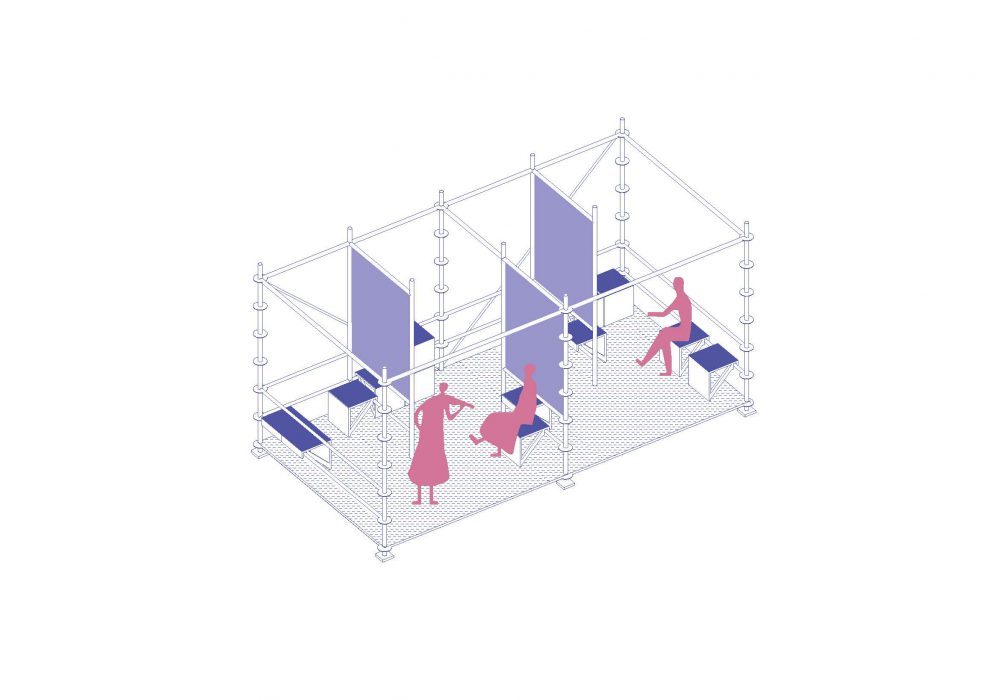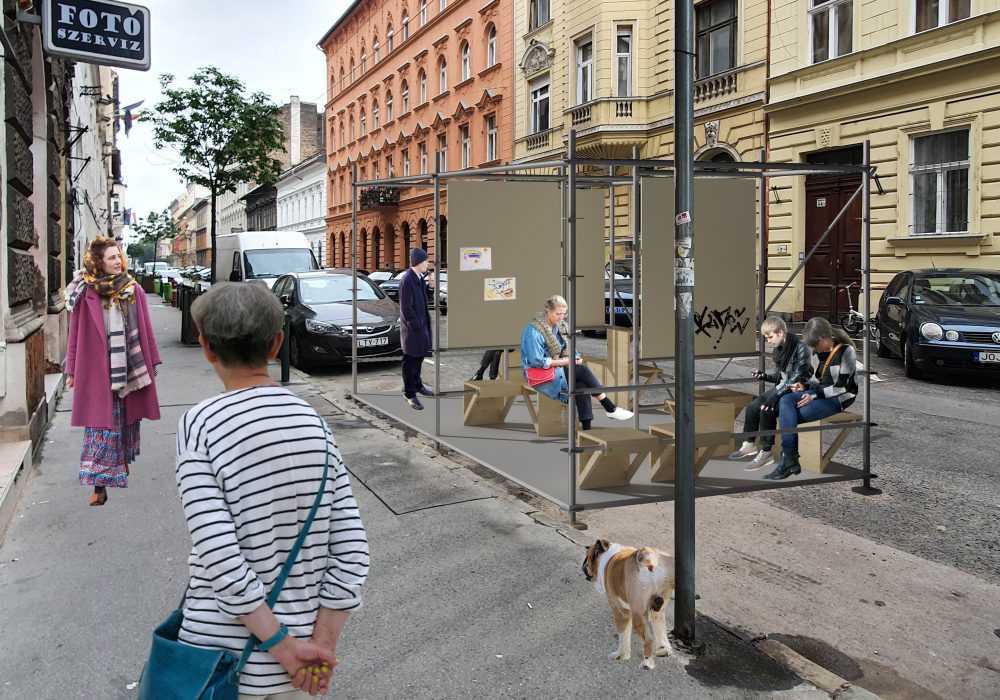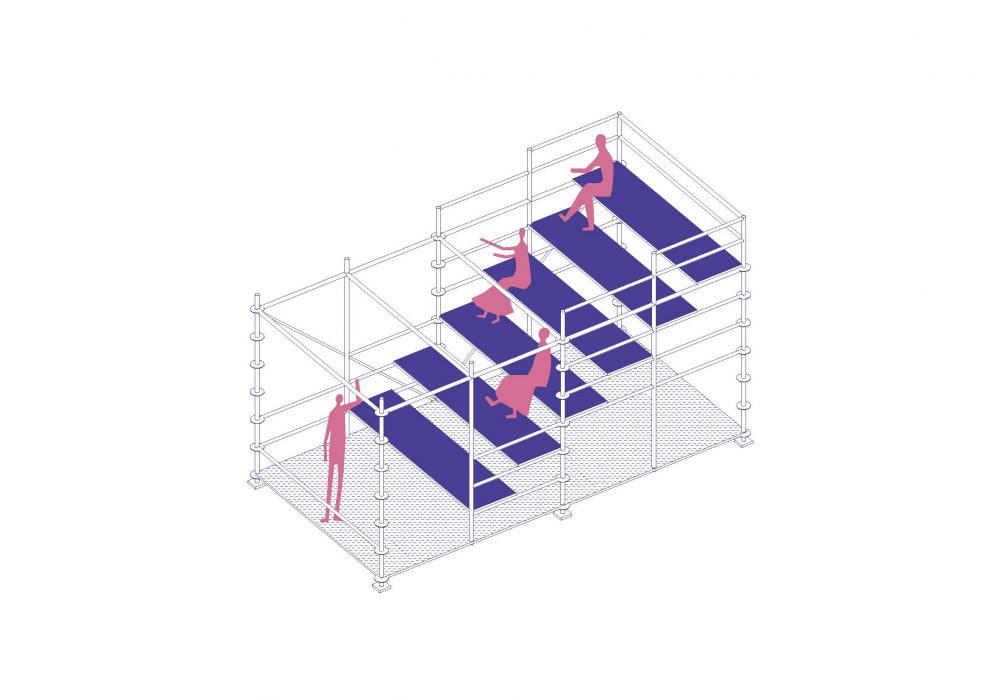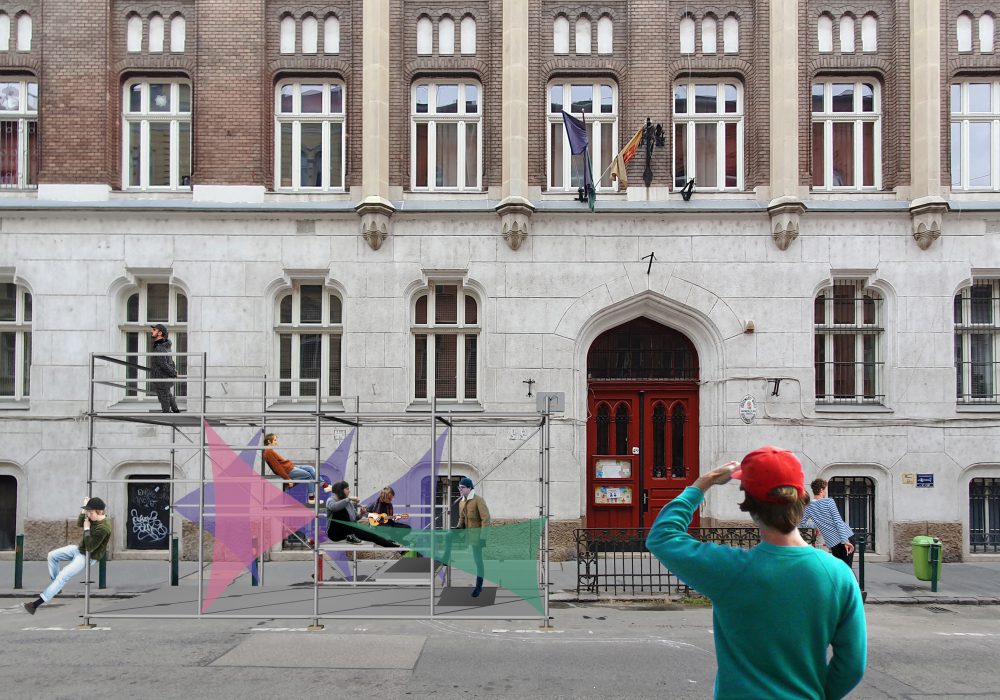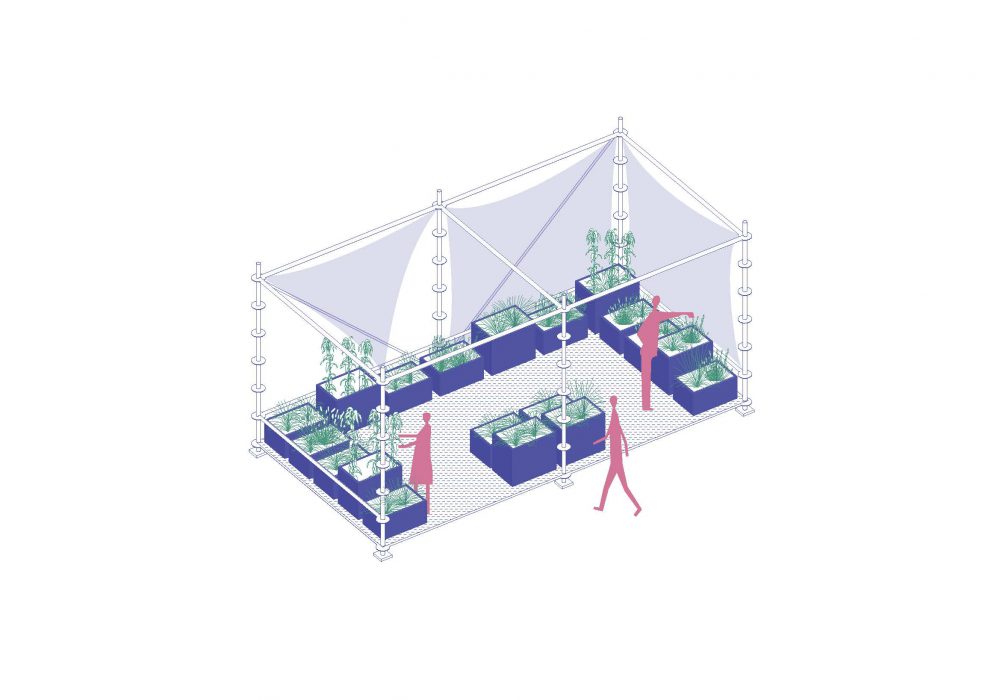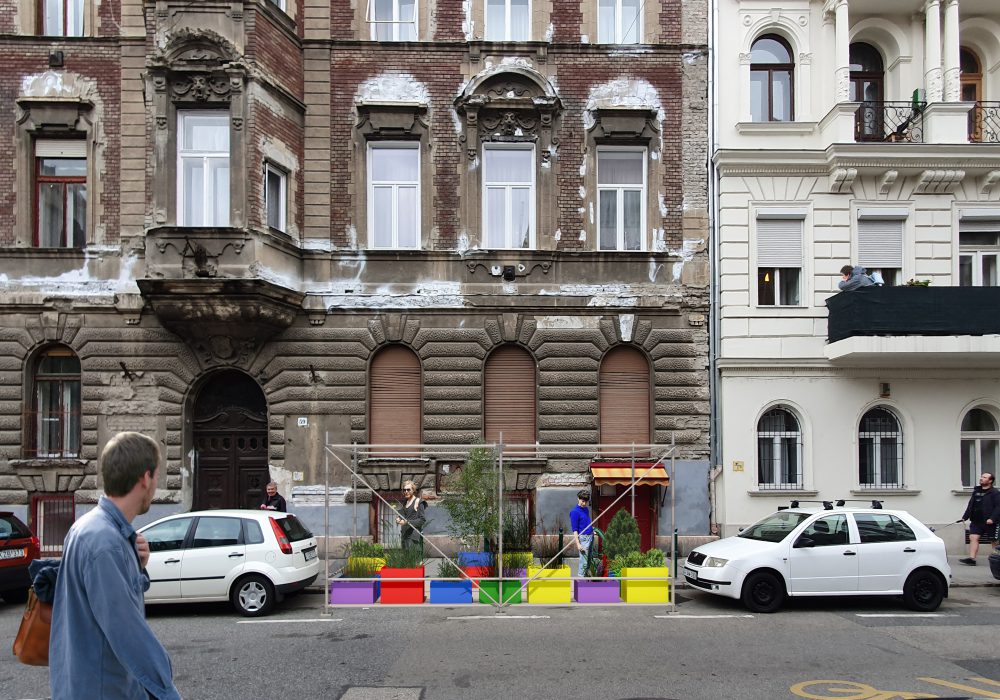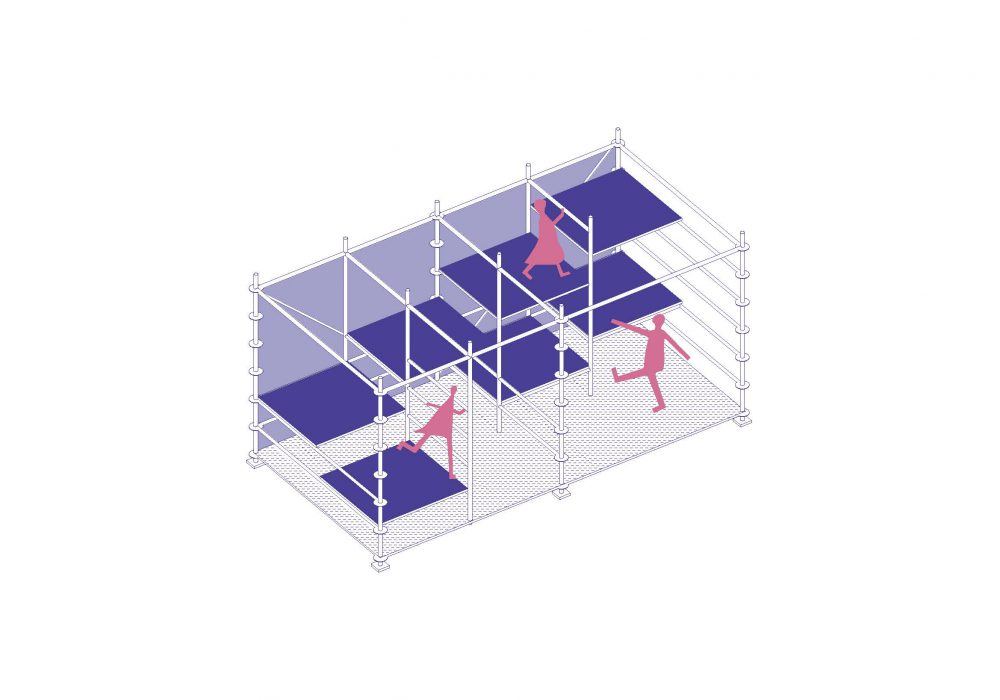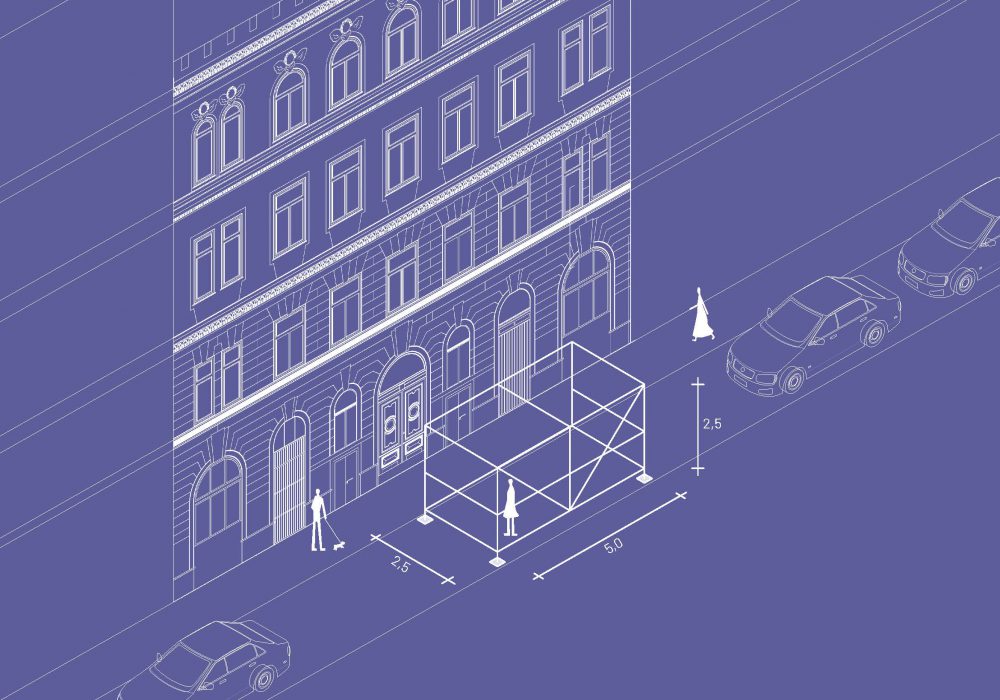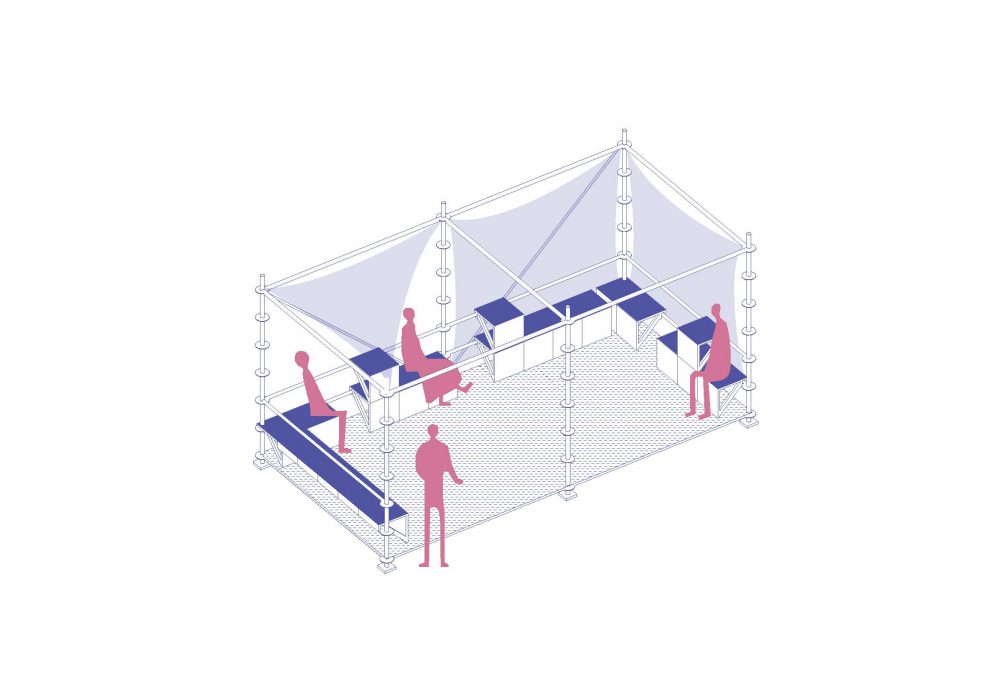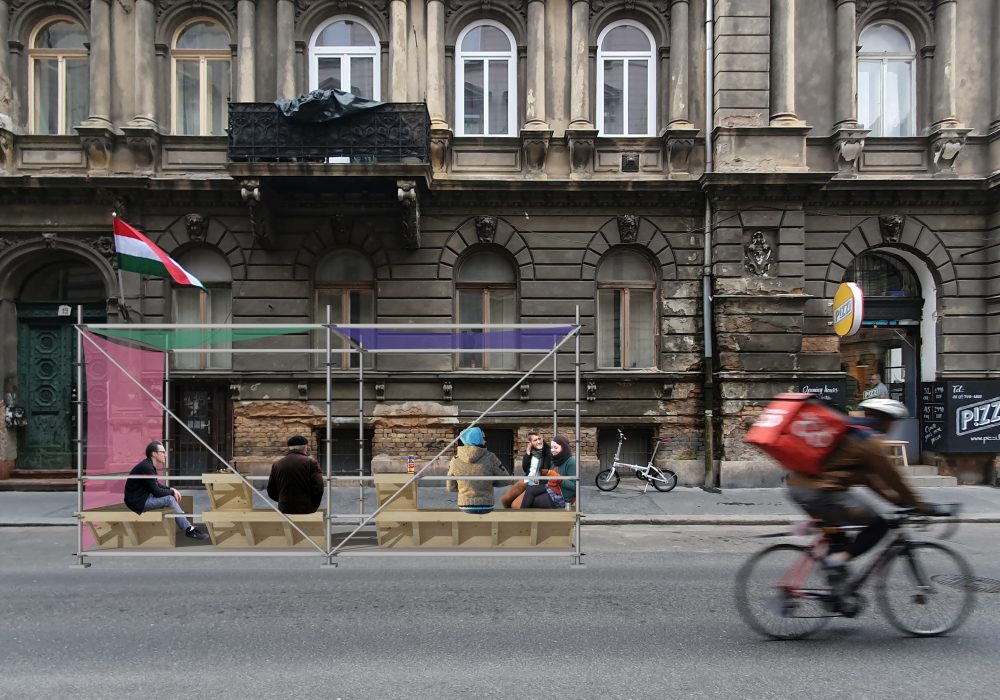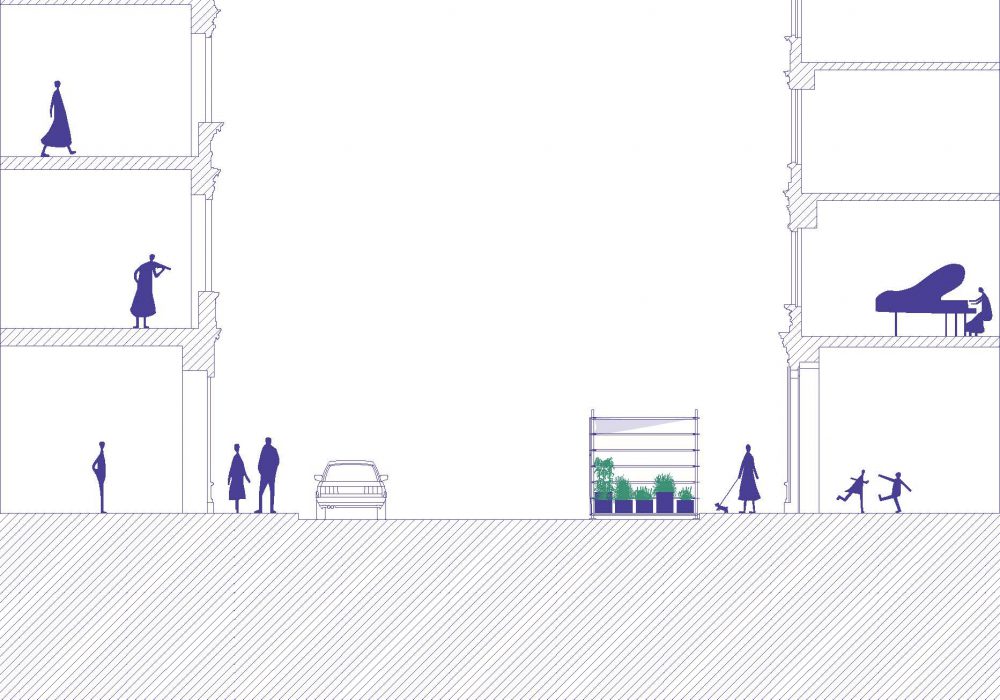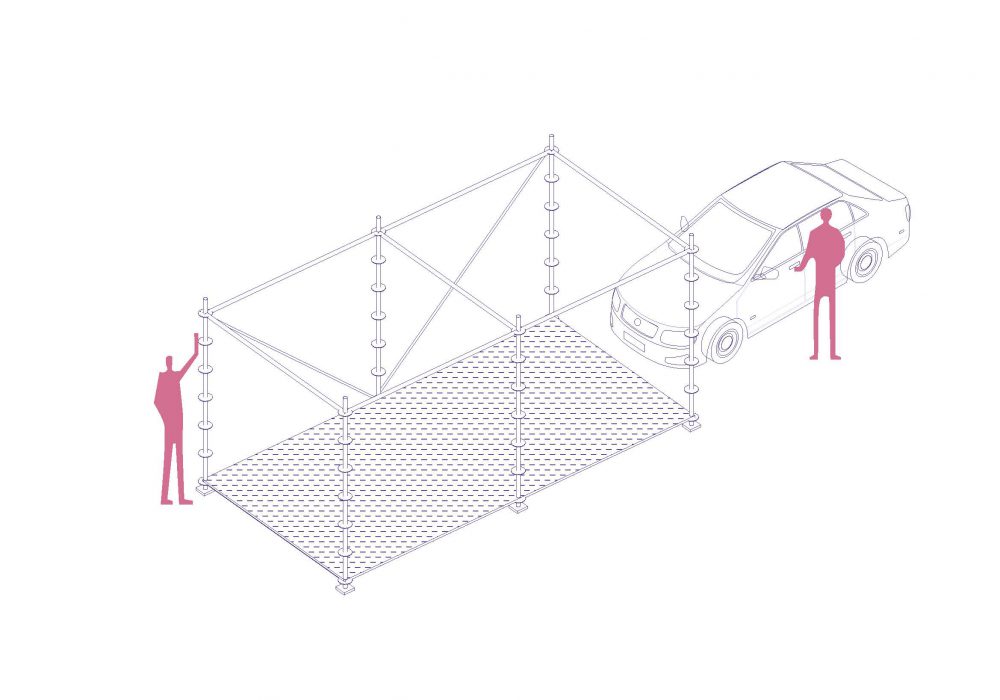The ABC of public space – István Bence Cselényi, Lilla Kammermann, Lilla Luca Varga
Student Research Societies 2020 – 3rd prize and Special Presentation Award of Student Representation
Our POP UP parklet action urges for a discussion on the current situation of public spaces in the 6th district of Budapest. We aim to draw the attention of the local communities, the local government and the urban developers to the issues listed below and also provide an easily and quickly realizable solution to them. One can say that the district of Terézváros, with its narrow and busy streets and an 86% built-up density, does not satisfy the ideals of a 21st century of urban environment; especially with regards to its liveability and climate-sensitivity. The area’s public spaces, with the notable exception of Hunyadi Square, do not offer a high quality spatial experience. Meanwhile, every street of the neighbourhood boasts immense parking spaces for cars on both sides of the road – often at the expense of cyclists and pedestrians.Moreover, the basic amenities of urban infrastructure (waste receptacles, telephone booths, planting boxes, parking ticket machines, etc.) are pushed onto the already constricted pavements. Even the cyclists and motorbikers are under the necessity of locking their bikes and vehicles there, due to the lack of storage opportunities elsewhere. The densely built-up urban fabric of the district, along with the traffic calming measures of the local government and their revision of the parking system, requires immediate and pointed action for improvement.
Közért (a name which translates to both ‘in the public’s interest’ and ‘mom-and-pop store’ in Hungarian) is a parklet designed for the dimensions of an average parking spot (2.5 x 5 m; 12,5 m2) whereby these public spaces shielded from traffic would be transformed with improved functionality. As a mean of tactical urbanism, our long-term ambition is to create a tendering system that allows members of the local residential and business communities to gain rental rights over these spaces. Through a modular system, which lets them choose from a list of units and functionalities, these reformed public spaces would be tailored to better suit the needs and desires of locals.
This would not only yield a better urban experience for all, but also provide small businesses with opportunities for growth and development, as well as widening the awareness of the issues that the locality is currently facing. We aim to accurately map the interests of residents and businesses and establish the appropriate forums for effective communication between these communities, their government, and urban developers; paving the way towards a future where space is used more equitably.
The entire research can be viewed here.
Consultants: György Alföldi DLA, Soma Pongor [Studio Nomad], Olívia Kurucz

